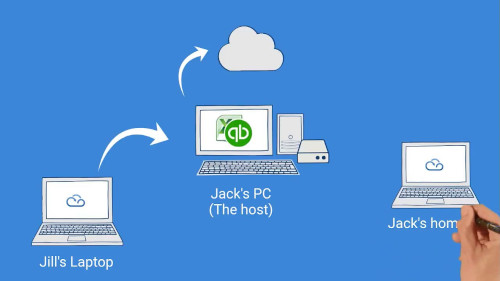MyQuickCloud explores remote working in more detail in this article.
For small and medium businesses (SMEs), remote work has become the norm. More and more SMEs are adopting flexible, remote working models as digital transformation continues to reshape every industry. Employees don’t just gain flexibility and the opportunity to work from home when they work remotely. Furthermore, it reduces office space and parking costs and improves employee satisfaction.
It’s essential to understand, however, how remote workers can impact your organization’s productivity and culture if you’re considering adopting remote work in 2023 and 2024. With so much uncertainty surrounding remote work adoption among SMEs today, this article addresses the challenges associated with implementing it. As a result, you will be able to optimize processes for remote work in the future.
For more information on how MyQuickCloud can support your firm, go here
Small and medium-sized businesses can benefit from remote work
Flexible work, less stress, improved focus, better quality of life, lower costs, reduced absenteeism, better employee retention, and greater productivity are the top benefits of remote work. Your organization can benefit from a remote work policy in many ways, including:
An increase in employee satisfaction
Remote work has become increasingly popular due to the rise of the freelance economy. Employees have greater flexibility and a sense of security when working remotely.
In large cities, commuting can be stressful for employees, which is why remote work can reduce stress. Long commutes can cause depression, anxiety, and even increase your risk of dying from heart disease or an accident, according to research.
Productivity increased
Many office workers deal with interruptions, including impromptu meetings, colleagues dropping by their desks, and nearby workers’ noise. Working remotely gives you greater control over your environment and fewer distractions.
Cost reductions
In major cities, office space is notoriously expensive. Allowing your employees to work remotely can help you save on rent and utilities.
What makes SMEs hesitant to adopt remote work?
Why don’t more SMEs take advantage of remote work? Consider the following potential issues:
Communication
Communication is crucial when employees are working remotely. There can be additional challenges if remote workers are located in different time zones. You need a strategy for remote communication, including using digital communication tools such as video conferencing, instant messaging, video calls, and email.
Establishing remote work within your organization also requires communication. Decide which roles should be performed in the office and which should be performed remotely. Your organization may also benefit from creating a remote-only role when setting up remote work.
Embrace the culture
Your organization’s culture changes when you implement remote work. Many remote workers feel less accountable to their organizations since they have more autonomy. Employees and managers may become resentful, feeling they have fewer opportunities to contribute and grow within the company. The change must be examined in terms of how it will affect your culture, and safeguards must be put in place to prevent this.
Working remotely presents organizational challenges
It is true that remote work has many advantages, but it also poses several challenges to managers and organizations.
Accountability
Keeping remote workers accountable is one of the most common organizational challenges. A manager can see if employees are showing up, working, or struggling in the office. In order to track and evaluate remote workers’ work, managers may have to spend more time away from their core duties.
Workplace management for remote workers
If your organization uses online collaboration and project management software, remote workers may work from different locations. Additionally, remote workers may have difficulty accessing the technology they need.
The remote workers’ skills gap
In addition to the skills gap among your remote workers, remote work presents another challenge. A hiring team can evaluate a person’s skills and experience when they observe him or her in person when they hire someone for an office-based position. Remote workers, on the other hand, may be screened based on their job title and work history, instead of screening for expertise.
Some people may benefit from remote work, but others may benefit more from roles in offices, where their skills can be fully utilised. If you hire remote workers, you may encounter a skills gap. The remote workers may not have the skills that your organization needs, or they may underutilize their skills.
Organizational challenges associated with remote workers
It can be an excellent fit for many people, but it also comes with some potential drawbacks and challenges. If you plan to implement remote work in your organization, here are some things you should be aware of:
Managing expectations
It’s common for remote workers to be more accountable to themselves rather than their office managers. You can benefit from it, but it can also lead to neglecting other aspects of your job or putting in less time than you should. Schedule boundaries must be established for remote workers to ensure their responsibilities are met.
Resentment from office workers
In the absence of safeguards, office workers may become resentful of remote work. Work from home may offer additional benefits to remote workers, such as greater autonomy.
The risk of remote work is worth it, right?
There are many advantages to working remotely for your organization, but there are also challenges. Make sure you understand the benefits and risks of implementing a remote work policy before you implement it. Consider your organization’s culture and business processes when implementing remote work.
Remote work is not something you should implement just because everyone else does. The best time to do it is when your organization can benefit from it.





